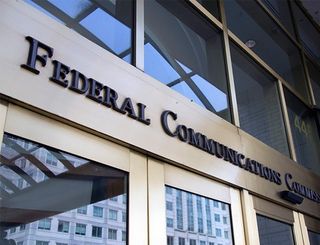FCC's Latest TV Reverse Auction Ending Dec. 1

The FCC Monday signaled that, barring the unforeseen, stage three of the reverse portion of the broadcast incentive auction will close Dec. 1.
That had been the expectation, but the FCC put an exclamation point on it by announcing it would hold up to five rounds that day, rather than the planned three rounds, to insure it wraps up, with the first two rounds an hour apiece and the last three lightning rounds at a half-hour apiece in case some last-minute decisions need to be accommodated.
That means on Dec. 1, the FCC will announce the latest value broadcasters have put on the spectrum they are volunteering to give up entirely or move off of, which is the total that forward auction bidders will have to meet—plus auction and broadcaster moving expenses—in order for the auction to close successfully.
Related: FCC Media Ownership Rules Head Back to Court
Stage three of the forward auction will likely begin within a matter of days.
So far, forward auction bidders—primarily wireless companies or would-be wireless companies looking to use it for broadband—have failed to come near broadcasters first two asking prices, which was about $86 billion for 126 MHz and then about $55 billion for 114 MHz.
Related: FCC Is Not Bound By Trump Regulatory Fiats
Broadcasting & Cable Newsletter
The smarter way to stay on top of broadcasting and cable industry. Sign up below
In the first two stages of the auction, forward auction bidders came nowhere near covering the clearing price at which TV stations were willing to give up 126 MHz and then 114 MHz of spectrum.
The first broadcaster clearing price was about $86 billion—the FCC set the prices high to attract those broadcasters. The second was about $55 billion. Forward auction bidders offered about $22 billion, then stuck with that price in the second stage of the forward auction, which lasted only one round after bidders essentially lowered their demand rather than raise their prices.
Related: FCC Judge Rules for GSN in Cablevision Complaint
That led some broadcasters to start questioning the wireless broadband "spectrum crunch" that led the FCC to propose the auction.
The less spectrum the FCC reclaims, the fewer TV stations will get the big paydays many were hoping for. The FCC has nine different spectrum targets. Stage three of the reverse auction launched Nov. 1 at a 108 MHz clearing target. If the forward auction bidders don't cover the stage three price, the next target is 84 MHz, which some see as the potential equilibrium point between broadcasters' asks and forward bidders' offers.
Contributing editor John Eggerton has been an editor and/or writer on media regulation, legislation and policy for over four decades, including covering the FCC, FTC, Congress, the major media trade associations, and the federal courts. In addition to Multichannel News and Broadcasting + Cable, his work has appeared in Radio World, TV Technology, TV Fax, This Week in Consumer Electronics, Variety and the Encyclopedia Britannica.

